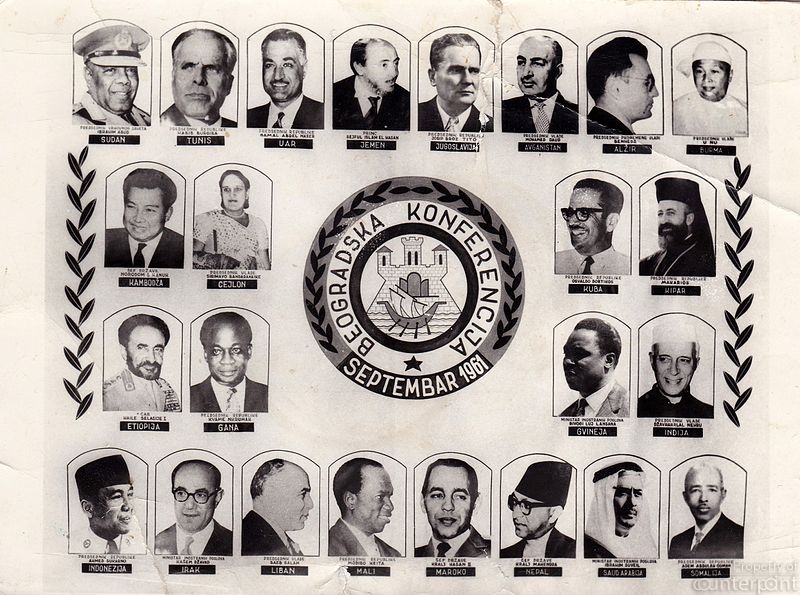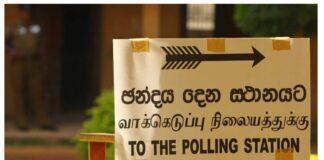
For the more seasoned observers of Southern international politics, a recent statement by Sri Lanka’s Foreign Minister Dinesh Gunawardene to the US authorities to the effect that the travel ban clamped by the latter on Sri Lankan Army Commander Shavendra Silva and his immediate family have complicated Sri Lanka’s ties with the US, would have come as a matter of some amusement. This is on account of the fact that this seeming realization by the Sri Lankan state strikes the informed observer as a highly belated ‘discovery’ that Lanka’s foreign policy formulators ought to have come to terms with quite some time back.
Sri Lanka’s relations with the US have always tended to be ‘complicated’ under local governments that profess not to be overly pro-Western in their foreign policy orientation; the more knowledgeable observers are likely to quip. This was particularly so between 2005 and 2015. The latter commentators would take up the position that any apparent late discoveries on this score don’t speak very well for the Sri Lankan foreign policy establishment’s far-sightedness and perceptiveness. They might add that any re-statement of commitment by these governments to Non-aligned principles only complicates further the matters at hand.
However, one cannot be too critical of small Southern states, such as Sri Lanka, on these questions.
These states, in the current global circumstances, are ‘all at sea’ on foreign policy issues in particular because over the past 30 years or more developments on the world stage, in relation to economics and politics, have overtaken them at an exceptionally rapid pace and left them far behind. It should not come as a surprise if these small states in particular have completely lost their foreign policy bearings; so bewildering have been the winds of change.
Are there any takers for Non-alignment among the major states of the South currently? The answer to this poser is a clear ‘No, because it is some decades since the policy of Non-alignment was downplayed by the South itself. Non-alignment is in the back burner, so to speak, of the foreign policy thinking of the global South, although it has not been ‘shown the door’, If at all it is occasionally referred to, it is among small states such as Sri Lanka. But even among the latter it is no hot topic.
However, Non-alignment cannot be seen as having outlived its usefulness. The more impoverished and weak among the global South could do with Non-alignment and its linked principles in this day and age but there is none to show the way, as was the case in the immediate post-independence decades. Those who led the South in the past, such as India, are today of First World status themselves and have more to lose than gain by harking back to ideals such as Non-alignment that were highly valid at one time.
Moreover, India did not pave the way for its current economic strength by adhering to Non- alignment per se. It essentially grew in material dynamism by following a policy of economic pragmatism; that is, by aligning itself to the economic thinking of the West; in particular the US. Basically, growth spurted in India as a result of her following a policy of economic liberalization and she has, to all outward appearances, gained through this policy change. But it is another matter whether she has wiped out economic inequalities in a big way. However, growth she has had and is continuing to have.
The success of India, to name one major Southern state that was in the forefront of Non-alignment, poses policy issues of the first magnitude for those Southern countries continuing to be dogged by development issues, such as Sri Lanka. For example, could they expect to taste even a degree of economic success by following an anti-Western policy trajectory? More specifically, could they ignore the existence of the US in their development efforts?

To be sure, the present Sri Lankan government could propel itself on an anti-US policy trajectory in the belief that China and Russia, for instance, would always come to its rescue in its time of need but what guarantee could it have of the enduring nature of these ties? How reliable would these allies prove to be?
To what extent would China and Russia jeopardise their relations with the US for Sri Lanka’s sake, come crunch time?
The rest of the economically weak countries of the South are bound to be up against these foreign policy dilemmas as well. Given that the US; economic penetration of the South cannot be reversed in the foreseeable future and given that material assistance from China, for example, is going to come at a price, they have little choice but to be accommodative of the US’s more urgent demands in the economic sphere.
Thus, it would be only be a matter of time before pacts of an MCC nature are willy-nilly accepted by them.
The alternative course for the South is to unite in a collective of the Non-aligned Movement kind that could face up to the Western powers. As touched on earlier, this cannot be done easily at present because the South does not have a formidable leadership. Countries such as India, Brazil and South Africa, who could provide such leadership and guidance, are today major economic powers whose fortunes are closely tied-up with the West. For them, economic pragmatism matters most.
There is no question of these major Southern powers ideologically aligning themselves to the poor of the South through a NAM-type vision and mega project at this juncture in history. As this is being written, India is expecting a landmark visit by US President Donald Trump. This is tantamount to further sealing a mutually-beneficial, flourishing tie in the face of perceived adversaries. The national interest usually over-rides all other considerations for states, big or small.
In a way, these times are more tense and uncertain for vulnerable states than the Cold War years. In the latter times, we had a fairly clearly structured international political system. That is, the world had two predominant power blocs that propelled global politics; NATO of the West and the Warsaw Pact of the
USSR and their satellites. This system has now crumbled and the world is exceptionally volatile.
Given this backdrop, it could be said that the futures of weak Southern states, such as Afghanistan, the Palestinian territories, Libya and Syria are highly uncertain. Today, these states have degenerated into conflict-ridden theatres featuring big power proxy wars and the UN could do precious little to help them.
Left to their own devices, they could very well wither and die.


 Logging you in...
Logging you in... Loading IntenseDebate Comments...
Loading IntenseDebate Comments...

